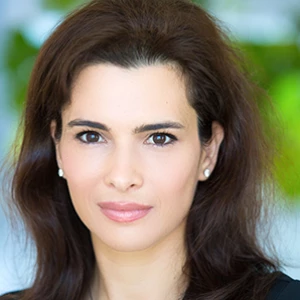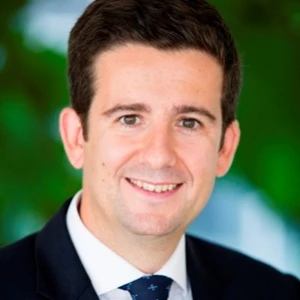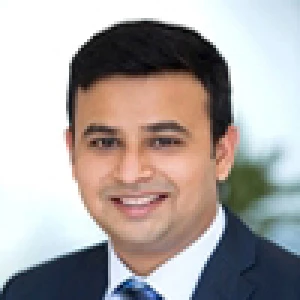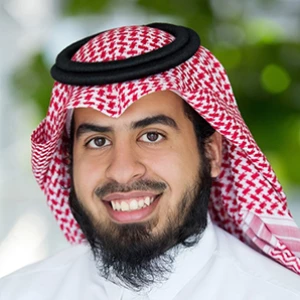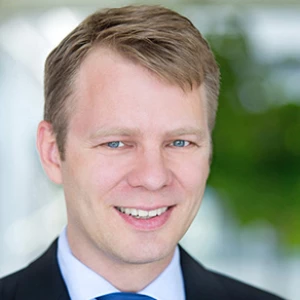The Boston Consulting Group’s first study of Saudi Arabia’s youth, in 2014, offered insights to policy makers seeking to improve the lives of the kingdom’s 13 million citizens under the age of 30. (See What Matters Most to Saudi Arabia’s Youth? , BCG Focus, June 2014.) During the past two years, this young generation has witnessed a change in national leadership, the effects of falling oil prices, and ongoing regional tensions.
Against this backdrop, BCG went back to young Saudis to refresh its insights regarding what matters most to this generation. (See “Finding Out What Matters in 2016.”)
FINDING OUT WHAT MATTERS IN 2016
FINDING OUT WHAT MATTERS IN 2016
In our 2016 study of Saudi youth, we both revisited topics examined in 2014 and explored new topics. We returned to six topics: values, regional affiliation, careers, education, entertainment, and civic engagement. We placed a particular emphasis on gaining a deeper understanding of the influence of careers, education, entertainment, and civic engagement on young Saudis. We also introduced two topics into the study—government reforms as well as regional instability and macroeconomic issues—to assess their impact in shaping what matters to Saudi youth.
The sample for our 2016 survey comprised 2,000 Saudi youth aged 16 to 29. We conducted 1,000 face-to-face interviews in Riyadh, Jeddah, Dammam, Abha, and Tabuk, as we did in 2014. We augmented these face-to-face interviews this year by surveying 1,000 young Saudis via mobile phone. The overall sample was chosen to represent Saudi youth demographics in terms of gender, age, region, and urban or rural location.
To supplement the survey findings, we conducted six focus groups in four cities. We conducted two focus groups in Riyadh and two in Jeddah, as we did in 2014. Additionally, we conducted one focus group in each of Abha and Tabuk, in order to capture regional variations in young people’s perspectives. We conducted separate focus groups for men and women. We selected the participants to achieve a balance of social strata, ages within the cohort, education level, and employment status.
Our second quantitative and qualitative study of Saudi youth builds on the 2014 study and focuses on three main questions:
- Who are young Saudis with respect to their values and responsibilities, and what determines their regional affiliation?
- What are their most important hopes and concerns, and how do they perceive the impact of related government reforms introduced so far?
- Have young Saudis been affected by economic and regional instability?
We found that young Saudis are becoming global citizens by integrating digital media into their lives. At the same time, they have retained a lifestyle centered on traditional values. Although they see the effects of economic and regional instability, Saudi youth’s satisfaction with most aspects of their lives has improved. As they look toward the future, their main areas of concern are career opportunities, education, and outlets for social engagement.
Who Are Young Saudis?
The young Saudis we studied were born from 1987 through 2000 and grew up with the internet. They are integrating digital-age influences into their customs and traditions and accepting greater responsibility for various aspects of their lives.
Retaining Traditional Values and the Influence of Islam. In our 2014 report, we described young Saudis as “a generation shaped by Islam, family, and the internet.” This description is equally valid today. The internet is widely used and very popular in the kingdom, enabling young Saudis to become tech savvy. At the same time, young people have retained their traditional Saudi values. Most respondents (73%) said that they socialize with their parents at least once a day, indicating that the family continues to play a central role in their lives and decision making. Indeed, Saudi youth seem to be adroitly integrating digital-age influences into a traditional mindset. And when we asked Saudi youth to choose from an assortment of pictures those that represent their values, their selections combined technology and contemporary fashion with traditional attire and religion. A female respondent from Riyadh expressed the underlying mindset: “Although society has changed and people are more open-minded now, Islam will continue to be part of our culture and shape our future.”
Accepting Greater Responsibility for Themselves and Others. We examined what Saudi youth regard as their level of responsibility in four important areas, as we did in 2014. (See Exhibit 1.) We observed that young Saudis are accepting greater responsibility in each area. The largest increase in perceived responsibility related to finding a job (rising from 22% to 56%), indicating that young people are more actively involved in shaping their careers. Respondents’ perceived responsibility was highest (62%) with respect to planning for their education in terms of choosing a major.
Almost half of the respondents (48%) also indicated that they are accepting greater responsibility for caring for sick relatives, compared with only 24% in 2014. As a female respondent from Jeddah explained, “Whenever I go to visit elderlies’ homes, I always find it very humbling and remember that I shouldn’t take things for granted.”
We found an improvement in perceived responsibility for road safety (9% in 2016, compared with 1% in 2014). However, the need for safer driving remains an area of concern that should be addressed through stricter regulations and strong awareness campaigns.
Assessing Their Regional Affiliation. Saudi Arabia’s population overall is rapidly migrating from rural to urban areas. Although developing Saudi Arabia’s cities will be critical in the years to come, building secondary cities and developing nonurban areas is also important to the kingdom’s long-term success. We used regression analysis to understand why young Saudis are moving and how they choose where to live. We found that the latter is influenced not only by family ties but also by factors such as accessibility via roads, cleanliness of the locality, the availability of utilities, and the number of career opportunities—factors that policy makers can potentially improve to attract the country’s youth to select areas.
What Are the Areas of Satisfaction and Concern for Young Saudis?
The survey found that young Saudis’ satisfaction with most aspects of their lives has improved since 2014. The biggest perceived improvements related to satisfaction with the local economy, crime level, and health care. (See Exhibit 2.) The only decline in satisfaction was in communication services. This decrease may be the result of pricing changes by telecom service providers, such as the move away from unlimited data packages.
We also asked young Saudis to tell us their primary areas of concern. At a national level, almost half (49%) indicated career opportunities as the primary area, followed by education (29%) and social life (25%). Regional variations were most prominent among the respondents from the south, where the largest concerns were public services (56%) and social life (52%). Given the respondents’ proximity to a conflict zone, the emphasis on these areas is not surprising.
To gain a better understanding of what matters most to Saudi youth, we delved deeper into their three main areas of concern: career opportunities, education as reflected in skill proficiency, and entertainment and social outlets.
Career Opportunities
Career opportunities are a perennial concern for Saudi youth, as was evident in our 2014 study. In 2016, we sought to understand whether young people’s perceptions of their career opportunities have improved and the key factors influencing any changes in perception.
Nearly all respondents (96%) said that they had seen an improvement in the number of job opportunities and their career prospects during the past two to three years. Interestingly, both men and women had similar perceptions of the improvements. This perceived improvement is noteworthy, given the challenging economic conditions in Saudi Arabia during recent years.
Among respondents who had perceived an improvement, 74% attributed it to Nitaqat, an initiative launched in 2011 that aims to increase Saudis’ participation in the private sector. (See Exhibit 3.) Education reform was cited by 68%. Hafiz, a program launched in 2011 to assist job seekers, was cited by 56%. Saudi youth’s positive perception of Nitaqat and Hafiz likely reflects the immediate impact of these programs. As a female respondent from Riyadh concisely explained, “Nitaqat has made it easy for us to find jobs.” Because education reforms typically require a longer lead time to improve career opportunities, their effectiveness will be even more evident in the coming years.
As in 2014, we asked young Saudis how they perceive their career opportunities, compared with those of their parents when they were young. Overall, 67% of respondents (compared with 49% in 2014) believe they have better career opportunities than their parents had. The improvement is more pronounced among first-time job seekers, who are the youngest respondents (aged 16 to 20 and 21 to 25). In the 2014 study, regional variations were pronounced. In contrast, the 2016 study indicates a more uniform perception across the kingdom, except for the southern region. (See Exhibit 4.) The more positive outlook on career prospects indicates that the government’s outreach and labor programs, which were set up to encourage young Saudis to accept responsibility for finding a job, are having an impact, despite challenging economic and sociopolitical conditions.
More than three-quarters of respondents (77%) said they prefer to be employed in the public sector, while less than one-quarter (22%) expressed a preference for private-sector employment. Less than 1% of respondents expressed interest in nonconventional careers (for example, in the arts, entertainment, sports, or volunteer and community organizations).
The focus group discussions provided insights into young Saudis’ preference for public-sector jobs. Participants cited a high starting salary, a more comfortable work atmosphere, better perks and facilities, and more paid time off. “The government sector offers job security. The private-sector contracts are of a shorter duration and lack job security; you also have to work under pressure,” explained a female participant from Abha.
Respondents attributed their lack of interest in pursuing nonconventional careers mainly to social stigma and the scarcity of organized outlets and training facilities (such as art workshops), especially outside major cities. For example, a male respondent from the northern city of Tabuk told us, “I can’t remember the last time I saw an art exhibition in Tabuk. There is no way I can pursue photography as a career here.” Respondents also cited the fear of failure, arising from a perceived skill deficit, compared with Saudis and expatriates trained abroad. One focus group participant asked, “How can I compete against the skills and capabilities of people trained internationally?”
In our focus group discussions, Saudi youth expressed interest in entrepreneurship. However, they pointed to a scarcity of training and support to start their own business. As a participant in Jeddah explained, “We need courses on entrepreneurship, as many students aspire to start their own ventures.”
Skill Proficiency
Considering the critical role of education reforms in preparing young people for their careers, it is important to understand Saudi youth’s perception of the education system. To gauge this, we asked young Saudis to rate their proficiency in skills required for careers in the 21st century. We based our questions on the 21st-century skill set proposed in a study commissioned by the World Economic Forum and prepared in collaboration with BCG. (See New Vision for Education: Unlocking the Potential of Technology , World Economic Forum report, 2015.)
We divided the skill set into three categories:
- Core skills: reading, writing, and numerical skills
- Complex skills: critical thinking, computer know-how, collaboration skills, communication proficiency, and creativity
- Character qualities: leadership, initiative, and adaptability
Only one in four respondents rated themselves as highly proficient in each of these categories. “We need courses to develop our customer service, English-language, and computer skills,” said a male respondent from Jeddah. This finding highlights a need for the government to make concentrated efforts to introduce courses that provide Saudi youth with career-relevant skills.
Entertainment and Social Outlets
Young Saudis are avid users of social media, which is the primary channel for social engagement in the kingdom. The widespread adoption of social media has promoted higher levels of social engagement, according to respondents. However, Saudi youth feel that social interaction is still limited and would be further improved through the availability of a wider variety of options for entertainment, cultural activities, and recreation that would enable them to socialize in person with their peers.
Media habits are evolving. Nationally, our survey found notable declines in young Saudis’ daily use of traditional media (TV, radio, and newspapers), compared with 2014. (See Exhibit 5.) However, in the south, traditional media is still relevant (94% watch TV, 50% listen to radio, and 16% read newspapers at least once a day).
Young Saudis’ consumption of traditional social media (Twitter, Facebook, and online news and blogs) has also declined. Focus group participants validated this trend and told us they had increased their usage of newer social media applications, such as Snapchat and Instagram.
Saudi youth’s preference for social media—its traditional forms and newer ones—both promotes and reflects its unique role in shaping Saudi society. Indeed, social media largely substitutes for human connection among the youth in Saudi society today. The views of a young woman from Riyadh highlight social media’s importance in the kingdom: “Social media means happiness, love, quick communication, and comfort.”
More diversified entertainment options are wanted. A majority of male and female respondents (88%) noticed improvements in the variety of entertainment options available to them in the past two years. When asked to select one or more reasons why their options had improved, 87% of these respondents cited the emergence of social media, because it not only enables but also provides entertainment; 64% attributed the improvement to the increase in the number of outlets, such as event halls, parks, and malls; and 59% credited better organized activities as well as the rise of quality outlets, both of which make higher-quality sports activities possible. As a male respondent from Tabuk explained, “There are changes happening. I have noticed that the government is building more public recreation facilities, such as parks.”
Although the variety of entertainment options has improved, 67% of respondents said they still wanted more-diversified outlets. This desire was most strongly expressed by respondents from the north (90%).
More outlets for social, cultural, and volunteer activities are being sought. Delving deeper to understand young Saudis’ level of engagement and participation in sociocultural organizations, the survey found that approximately 25% of respondents are active members of sports clubs, arts and cultural groups, and charity and volunteer organizations.
Among the types of organizations we listed, sports clubs had the highest level of participation (14%). Only 2% of respondents were involved in arts and cultural associations, which was the lowest level among the organizations listed. Additionally, we found that male respondents’ participation in social organizations was notably higher than that of female respondents.
Despite the generally low participation rates, young Saudis expressed interest in working with a charity or volunteer organization and recognized the benefits. “Volunteering teaches you to interact well with people and be kind to them. I have volunteered during Hajj,” explained a male respondent from Jeddah. “We want to collaborate with women from other countries and do volunteer work in Africa and Syria,” said a female respondent from Riyadh. However, young Saudis said that it is difficult to pursue their interests. Some volunteer opportunities are inadequately publicized, while others are poorly organized. In addition, the procedures to obtain permits to organize a charitable event, for example, are complicated. Only a few organizations provide and manage volunteering outlets in a professional manner, pointing to the need for policies that promote a greater number of professionally managed outlets across the country.
Have Regional Factors Affected Saudi Youth?
To obtain a complete picture of what influences Saudi youth, we also explored their perceptions of the impact of factors such as regional instability and falling oil prices. A focus group respondent from Riyadh expressed young Saudis’ wide variety of concerns: “I’m worried about health and diseases, the economic crisis, and the tense political situation with some of our neighbors.”
Nearly all respondents (93%) said that regional issues have had a visible impact on their communities. Among respondents who cited a specific issue, 77% pointed to regional instability arising from cross-border tensions and 63% cited the economic slowdown. A much greater percentage of respondents from the south (94%) selected regional instability as a major factor, reflecting their proximity to the cross-border tensions.
Applying the Insights to Tailor Initiatives
After exploring who young Saudis are and their concerns, we examined selected initiatives to address various factors.
Developing Regional Hubs
The study revealed that where young Saudis choose to live is closely linked to the availability of roads, utilities, and career opportunities, as well as the cleanliness of the locality. To make it attractive for young people to pursue careers in select areas, the government should implement a national investment strategy that develops economic hubs. These hubs would serve as anchor points for nearby rural areas and help to unify them to pursue common objectives. Providing both “hard” and “soft” infrastructure is critical to making rural areas attractive and competitive. For example, to raise the productivity of rural areas in the UK, the government has launched a ten-point plan called “Towards a one nation economy.” The plan aims to develop hard infrastructure (such as housing, transportation, and high-speed internet service), as well as improve soft infrastructure (including affordable childcare, high-quality education, and apprenticeship programs).
Expanding Career Opportunities
To expand career opportunities, policy makers should consider approaches to promote private-sector employment, nonconventional careers, volunteering, and entrepreneurship.
Increasing the Private Sector’s Attractiveness. Policy makers have implemented initiatives, such as Nitaqat, to increase the availability of private-sector career opportunities for Saudi youth. However, the public sector remains young Saudis’ preferred employer, owing to high starting salaries, better perks, and a flexible and easy work environment.
To attract more young Saudis to the private sector, the government needs to work with companies to increase their total contribution to GDP. Policy makers can achieve this through privatizations, for example, as well as public-private partnerships and the outsourcing of public services. The government also must help companies improve their value proposition as employers and raise the standards for employment in the public sector. To promote the former, policy makers can consider encouraging companies to communicate well-defined career paths that are financially attractive in the medium term, as well as provide structured learning and development opportunities for employees. To address the latter, the government can increase the rigor and accountability of public-sector jobs, so that public- and private-sector careers are more equivalent.
India is an example of a country that has successfully developed its private sector. Government-driven privatization efforts that began in 1991 spurred the growth of the private sector, and its contribution to GDP increased from 15% in 1991 to 64% in 2013. As the sector grew, so did the competition for talent, and companies offered better salaries, training, and career opportunities to attract people from the public sector as well as from private companies. Today, the private sector is the employer of choice. Saudi Arabia is on a similar path with its Vision 2030 plan, a blueprint of long-term goals.
Raising Participation in Nonconventional Careers and Volunteering. To increase young people’s participation in nonconventional careers, policy makers should follow a three-pronged approach. First, they should use career education and focused marketing campaigns to increase young people’s awareness of atypical career options. Sport New Zealand, for example, is a government body that improves awareness of sports activities and directs young people to related career opportunities. Second, policy makers should provide incentives for education and training institutions to create more outlets that prepare young Saudis to pursue nonconventional careers. Increasing the number of outlets will also help create strong and supportive communities of people who have common interests. Third, to eliminate the social stigma associated with atypical careers, policy makers should seek to change the mindset of older generations. For example, the government could conduct a public relations campaign that uses role models (such as athletes or actors) to showcase the attractiveness of nonconventional careers.
To increase young Saudis’ interest in volunteering, policy makers could look to countries that have successfully promoted nonprofit entities at the national and regional levels. For example, Canada has one of the highest volunteer participation rates globally because of well-publicized organizations such as Volunteer Canada. In addition to listing local volunteer centers, the organization’s web portal provides guidance to individuals and organizations about launching and managing campaigns to recruit volunteers. The organization supports events, such as National Volunteer Week and International Volunteer Day, that build awareness among young people.
Making Entrepreneurship a Viable Option. Saudi youth indicated that they regard entrepreneurship as an attractive career option. However, they cited major hurdles to starting a business, including a lack of suitable training institutes and inadequate access to capital and incubators that assist startup companies. The government has implemented initiatives to support entrepreneurship, such as the Small and Medium Enterprises Authority and 9/10ths. Although these are steps in the right direction, the government can further accelerate the growth of small businesses by targeting their distinctive needs. Initiatives should include providing access to training and high-quality incubators and support in obtaining capital, as well as simplifying the regulations that cover the launch and operation of small businesses. Internationally, the European Union, Singapore, the US, and other governments have adopted approaches that provide comprehensive support for the development of small businesses and entrepreneurial skills.
Improving the Quality of Education
In any country, the quality of an education system is influenced by three main factors: the effectiveness of teachers, the suitability of the curricula, and the availability of high-quality schools. A program designed to improve the quality of an education system must address each of these factors. First, to improve teacher effectiveness, policy makers should design a program that provides teachers with continuous knowledge-building in the subjects they teach as well as training in how to adjust their teaching style so that they can effectively convey knowledge to all students. Second, policy makers should institute reforms that match the curricula to the skill set students need to succeed in the 21st-century labor market. Third, policy makers should improve access to high-quality schools by implementing stricter public- and private-school standards that are in line with international benchmarks. By pursuing strategic private partnerships with internationally renowned institutions, the Saudi government can help to improve performance in all three areas. Countries known for the high quality of their education system, such as Singapore and India, have implemented similar strategic private partnerships.
Promoting Civic Engagement
Saudi youth respect their elders and look to them for guidance in their daily lives. In order to maximize the success and impact of initiatives aimed at improving the lives of Saudi youth, it is critical for policy makers to engage all generations of Saudis in the process. Saudi policy makers have been using social media, such as Twitter and Facebook, to communicate with citizens. Focus group participants are aware of these efforts, but they believe that there is considerable room for improving the two-way dialogue. Internationally, governments have augmented their communication efforts by establishing youth councils. Greece, Malaysia, Scotland, and South Korea are notable examples. In Malaysia, the government has established a Youth Parliament comprising elected members aged 18 to 30. These young people have a mandate to debate issues of importance to the country’s youth and share finalized resolutions with the national parliament. Government ministers regularly set aside time to interact with and answer questions from the members of the Youth Parliament.
Our study finds that young Saudis are a generation deeply rooted in the kingdom’s traditional values. They have concerns regarding their lives and future opportunities but recognize the efforts made by the kingdom’s leadership to promote improvements. Saudi youth are willing to take on additional responsibilities and play an active role in shaping the kingdom’s future.
These findings are important, as the Saudi government has recently launched Vision 2030, one of the largest and most inclusive development plans in the kingdom’s history. Vision 2030 seeks to promote the development of a vibrant society, a thriving economy, and an ambitious nation, with the core aim of improving many aspects of Saudi life. By considering the initiatives presented here, nurturing young Saudis’ ambitions, and engaging them in the process, policy makers can help achieve the government’s broader goals for the development of Saudi society.

